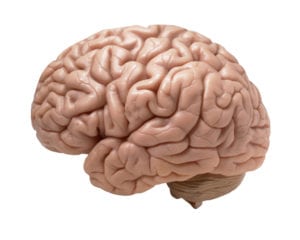 Migraines are often described as recurrent headaches with symptom-free gaps between them. They can last anywhere from a few hours to a few days and may occur several times a week, or only once or twice a year. These recurring headaches are most common in female teenagers.
Migraines are often described as recurrent headaches with symptom-free gaps between them. They can last anywhere from a few hours to a few days and may occur several times a week, or only once or twice a year. These recurring headaches are most common in female teenagers.
If your family has a history of migraines, your child may be more prone to getting them.
Symptoms of Migraines
- Head pain, typically on only one side
- Tightness around head and neck
- Drowsiness
- Blurry vision
- Aura (seeing flashes of light or zigzag patterns)
- Sensitivity to Light
- Numb hands/feet
- Nausea
- Vomiting
- Abdominal pain
- Headache relief after sleep
Managing Migraines
Firstly, migraines are not usually severe, so you can manage them at home. First, it’s important to try to avoid any migraine triggers. Triggers can include eating certain foods, stress, hormone changes, and any other factors. Keep a diary to help identify these triggers and avoid them in the future. In the diary, note the date, time, and location, as well as the headache duration and severity. Furthermore, include information about what foods your child ate before their headache, and any stressors or environmental triggers. Causes of migraines can be diverse, so it’s important to consider all of the potential triggers. Migraines can be caused by anything from fatigue to a toothache, so make good notes.
In general, it’s important to encourage your kid to make healthy choices and avoid attacks. Make sure they’re getting enough sleep, eating regular meals, exercising regularly, and paying attention to patterns that cause headaches.
What to do During a Migraine Attack
- Lie down and rest in a dark, quiet space.
- Consider an over-the-counter pain reliever, like Tylenol or Acetaminophen.
- Encourage your child to speak up as soon as they feel symptoms. It is easier to treat migraines in the early stages.
- Elevate the head slightly.
- Use a cold pack for the pain.
- Use relaxation exercises to help your kid handle stress.
The Homeopathic Approach
If you’re less likely to try over-the-counter pain meds or are simply interested in some alternative methods to respond to migraine attacks, consider natural methods, vitamins, minerals, or supplements to help prevent and manage attacks. Some migraine sufferers find that over-the-counter pain medications stop working as well over time. Some medications have negative side effects or may interact with something else your child is taking.
Natural Remedies to Help Prevent Migraines
- Massage therapy
- Acupuncture
- Biofeedback (measuring tension in the body)
- Vitamins B2 and B6
- Vitamin D
- Vitamin E
- Magnesium
- Potassium
- Coenzyme Q10 (CoQ10)
- Butterbur
- Peppermint oil (diffused or diluted and rubbed at the temples)
- Caffeine
- Ginger Root
- Gingko Biloba
- Feverfew
- Flaxseed
- Fish oil
Supplements, vitamins, minerals or other natural remedies are usually not tested by the FDA. While they are not drugs, natural remedies can still cause side effects. You should always consult your pediatric healthcare provider before trying any natural therapies or alternative methods in response to migraine attacks.
When to Call Your Pediatric Healthcare Provider
- Confusion, dizziness, or slurred speech
- Fever
- Numbness
- Stiff neck
- Loss of vision
- Weakness or paralysis
- Persistent vomiting and/or diarrhea
- Migraines are interfering with normal functions (i.e. school, activities, etc.)
In conclusion, it’s important for you to trust your instincts. You know your child better than anyone else and you can tell normal behavior from concerning behavior. If your child has lost consciousness or is vomiting uncontrollably, seek emergency care.
Finally, for questions or concerns, respond to this blog or contact us.




